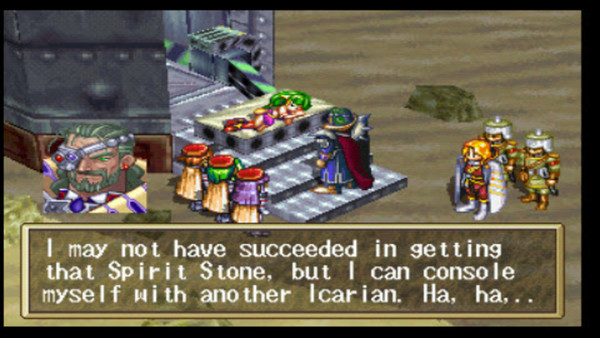The Evolution Of The JRPG
Taking It To The Next Dimension

The early 90s saw a steady period of success for the JRPG, but by the midpoint of the century, developers were looking to expand on their vision. Hybrid action/RPG's like Secret of Mana, Chrono Trigger and Terranigma were pushing the SNES to its limit, and it was time for something new.
That something arrived in the Sony PlayStation... and to a lesser extent, the Sega Saturn. Whilst the latter was home to a few decent ports, like the Lunar series and Grandia, it was Sony's first foray into consoles that saw the JRPG take massive leaps into what the bigger advancement in technology could do.
Whilst some developers were still playing it safe with 2D, sprite-based RPG's (with just a dab of 3D) like Capcom with Breath of Fire and Konami's oft-revered Suikoden series, others were pursuing this new dimension with absolute gusto. Game Arts and Ubisoft ported their 2D/3D hybrid Grandia over for larger success, but there just that little something that was missing for the genre to explode.
With the new technology saw more scope from developers to tell their stories, as the standard fantasy tropes were beginning to evolve into something much, much more. Suikoden was based on a Chinese fable about warring states, whilst Sony's own Wild Arms looked to the Wild West for its story inspiration. Developers were looking to branch out, both in story and scope, and this was the format to do it on.
All it needed was one killer title to lift the lid on this style of turn-based, story-focused gaming...